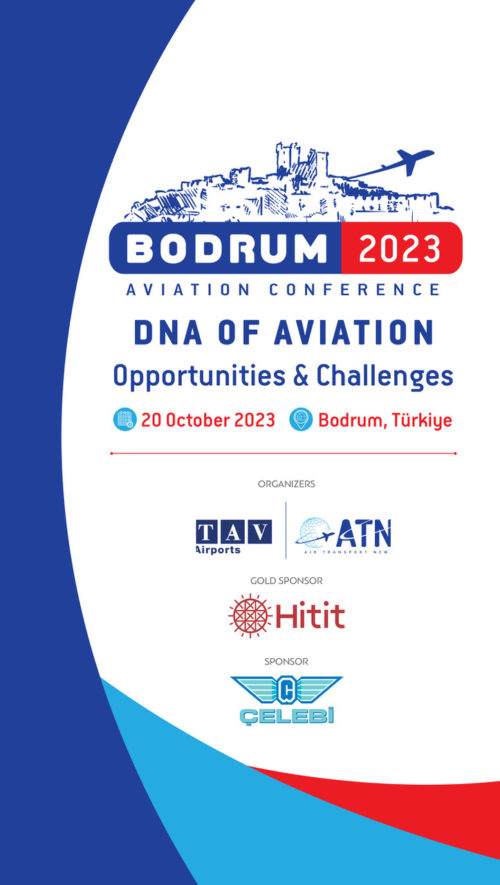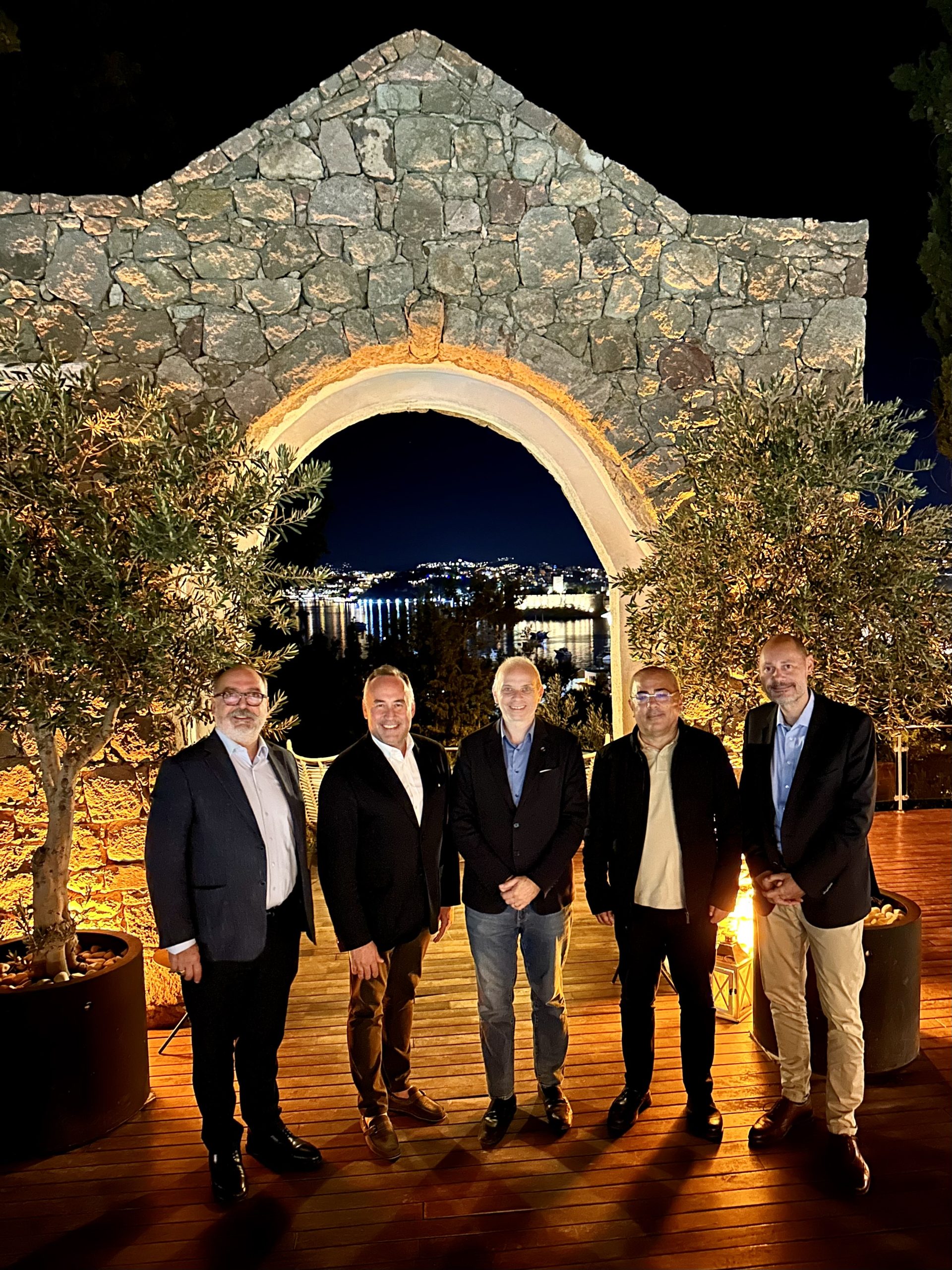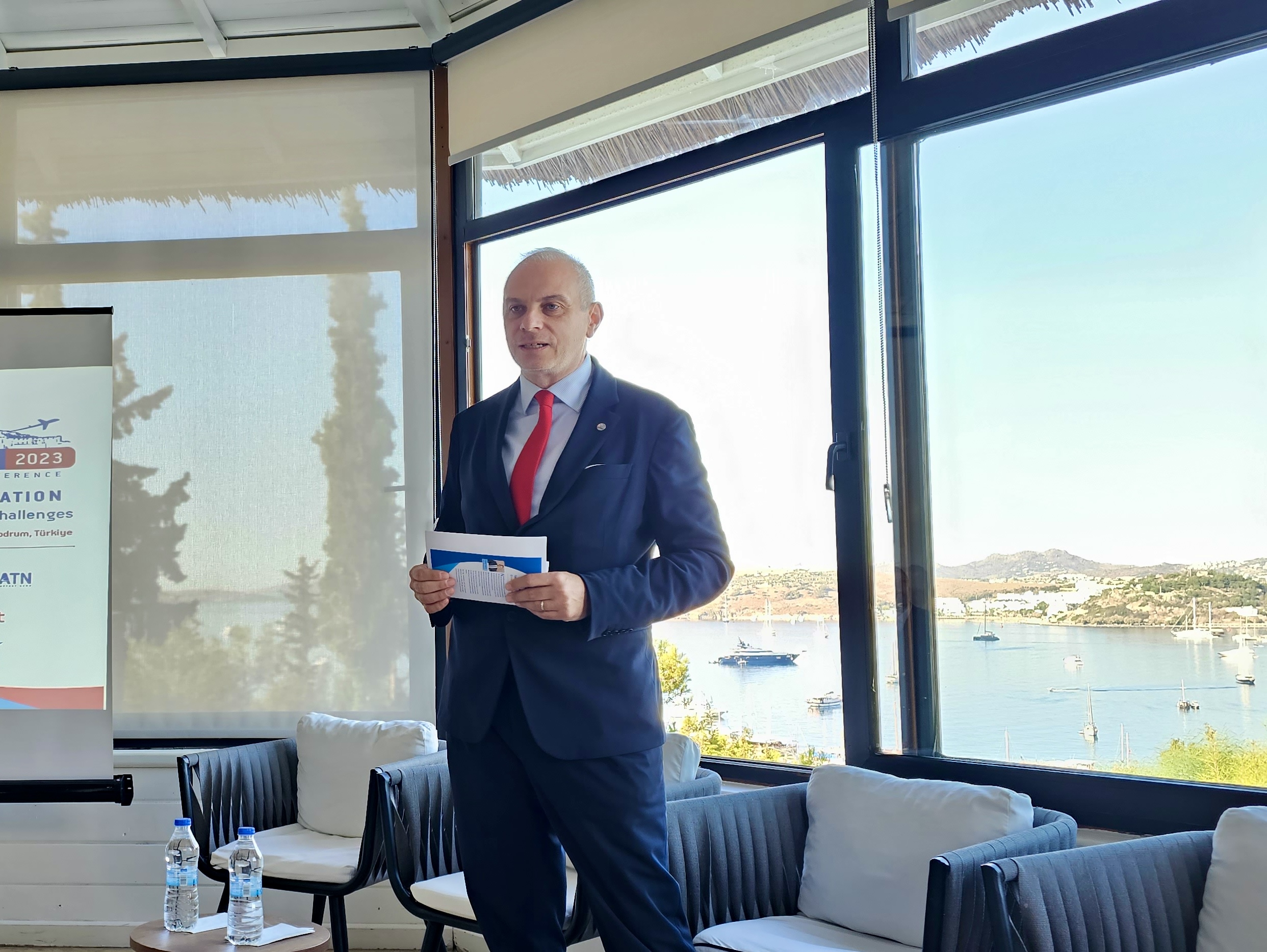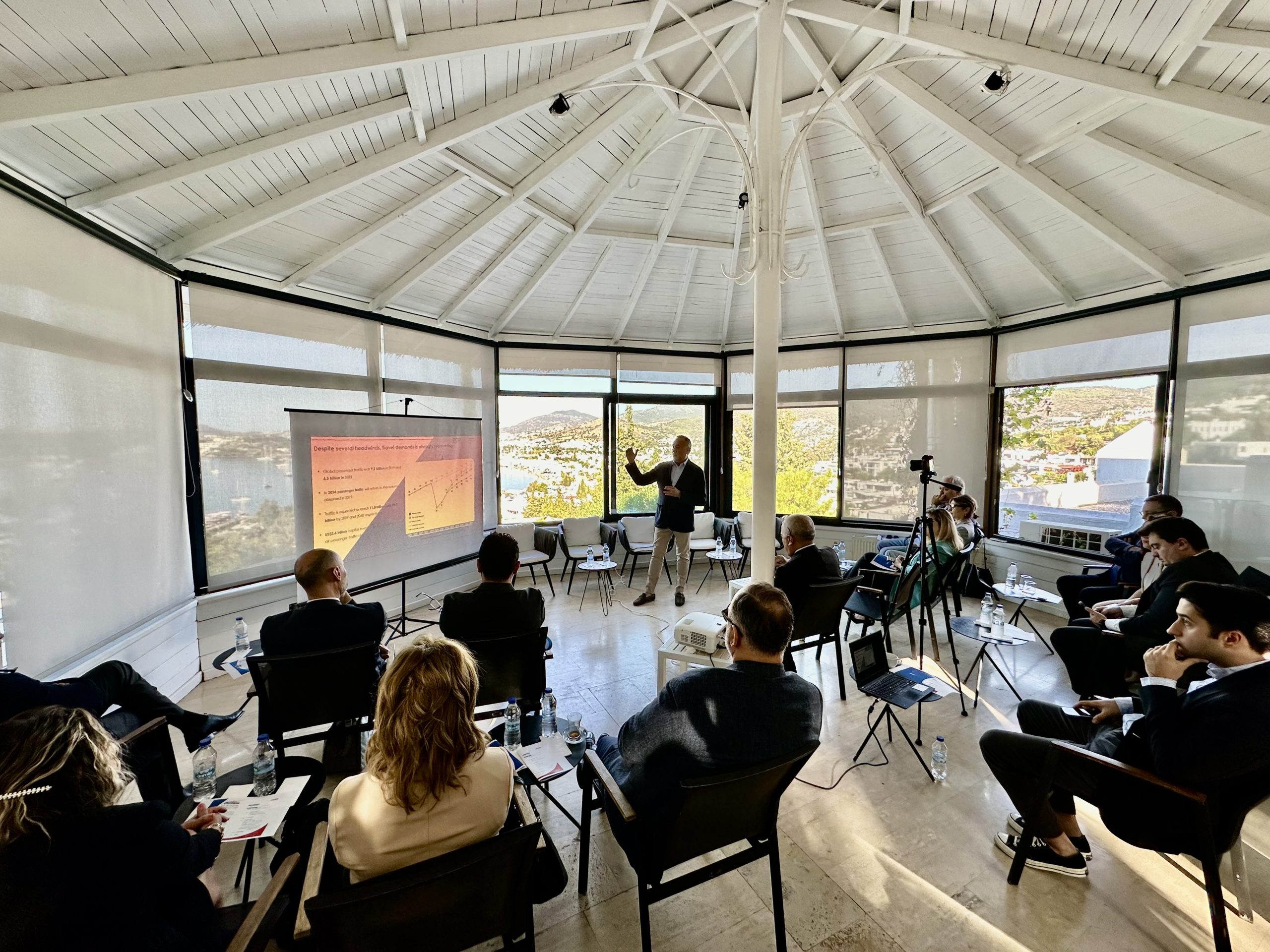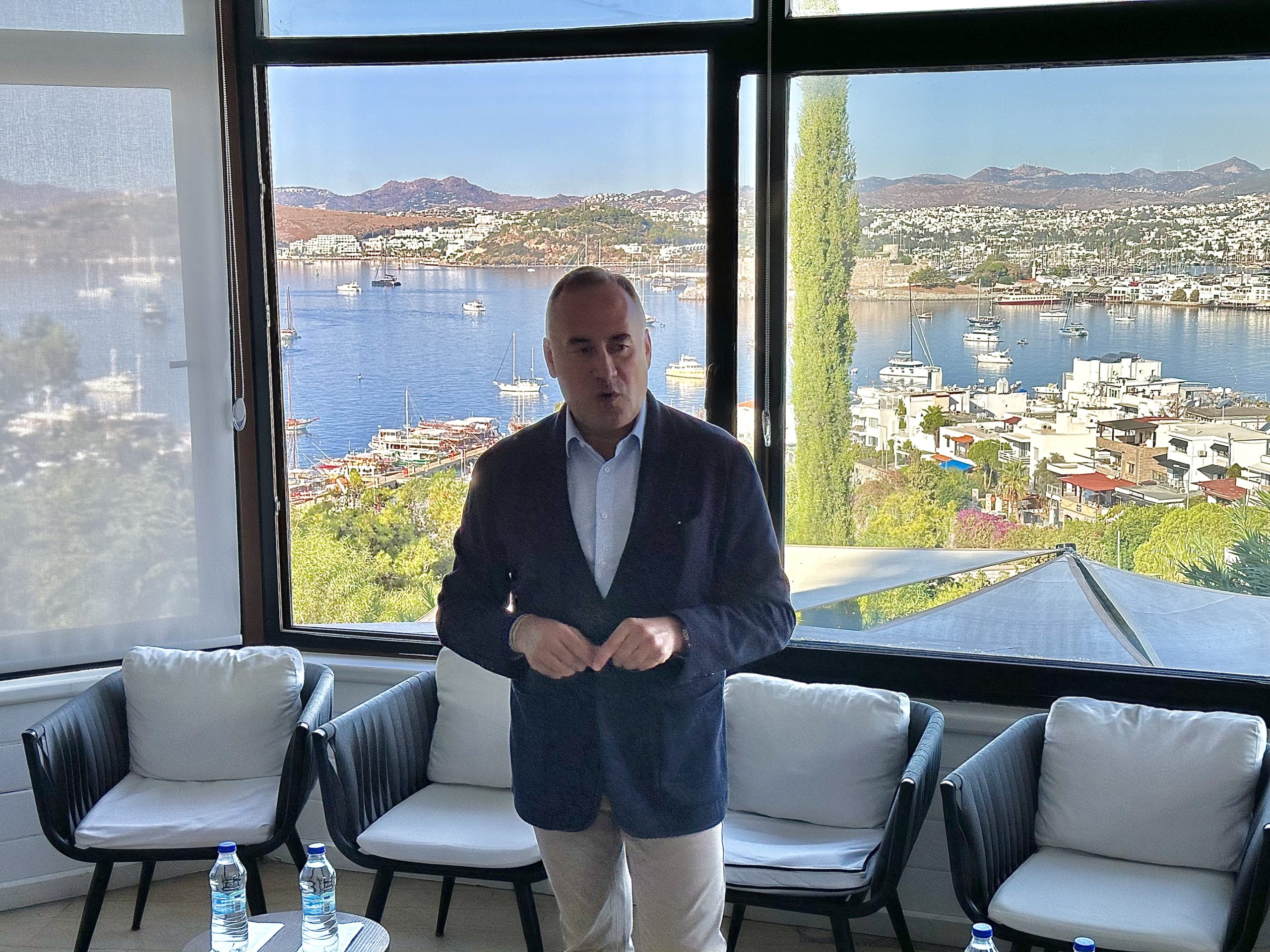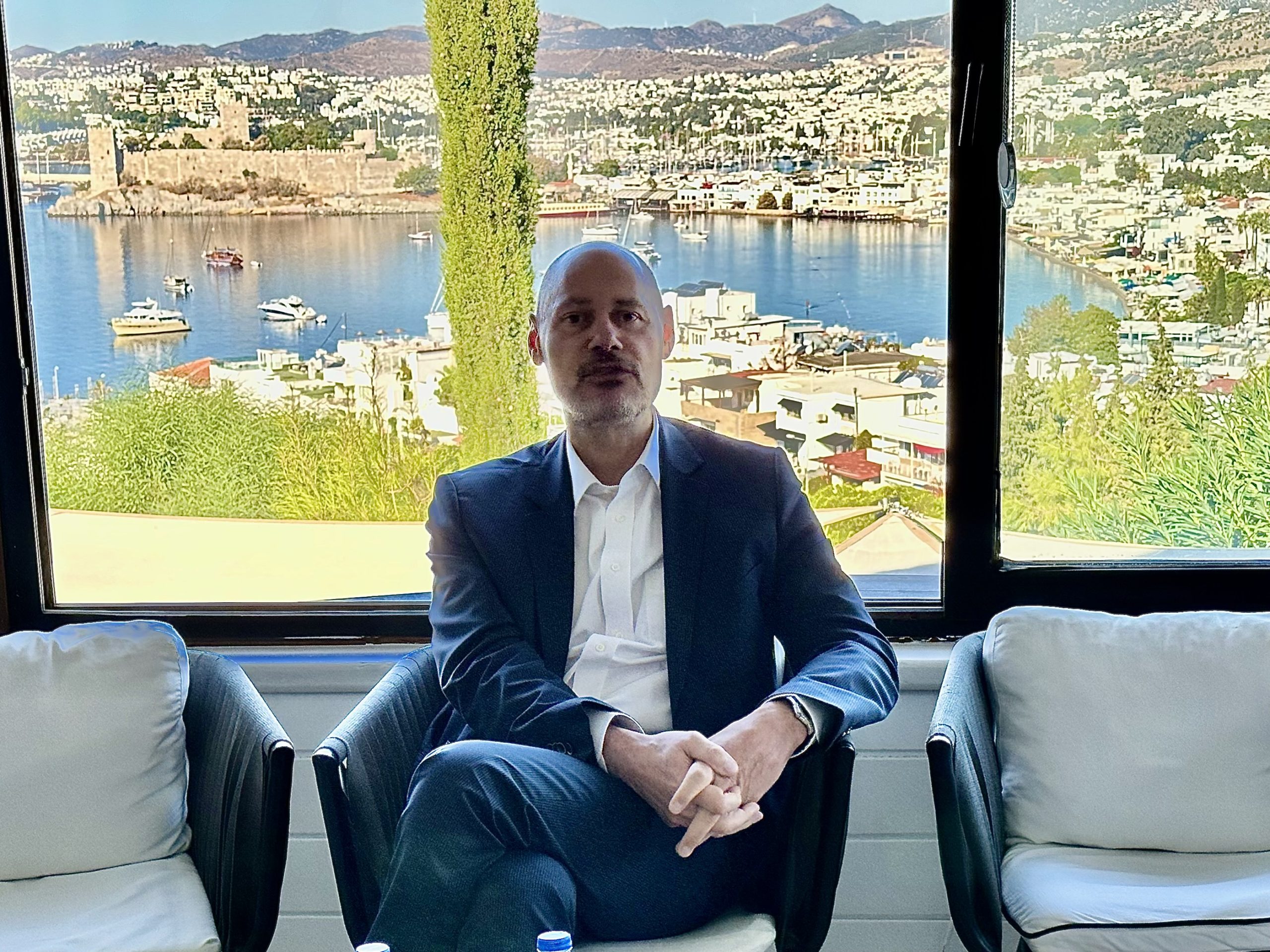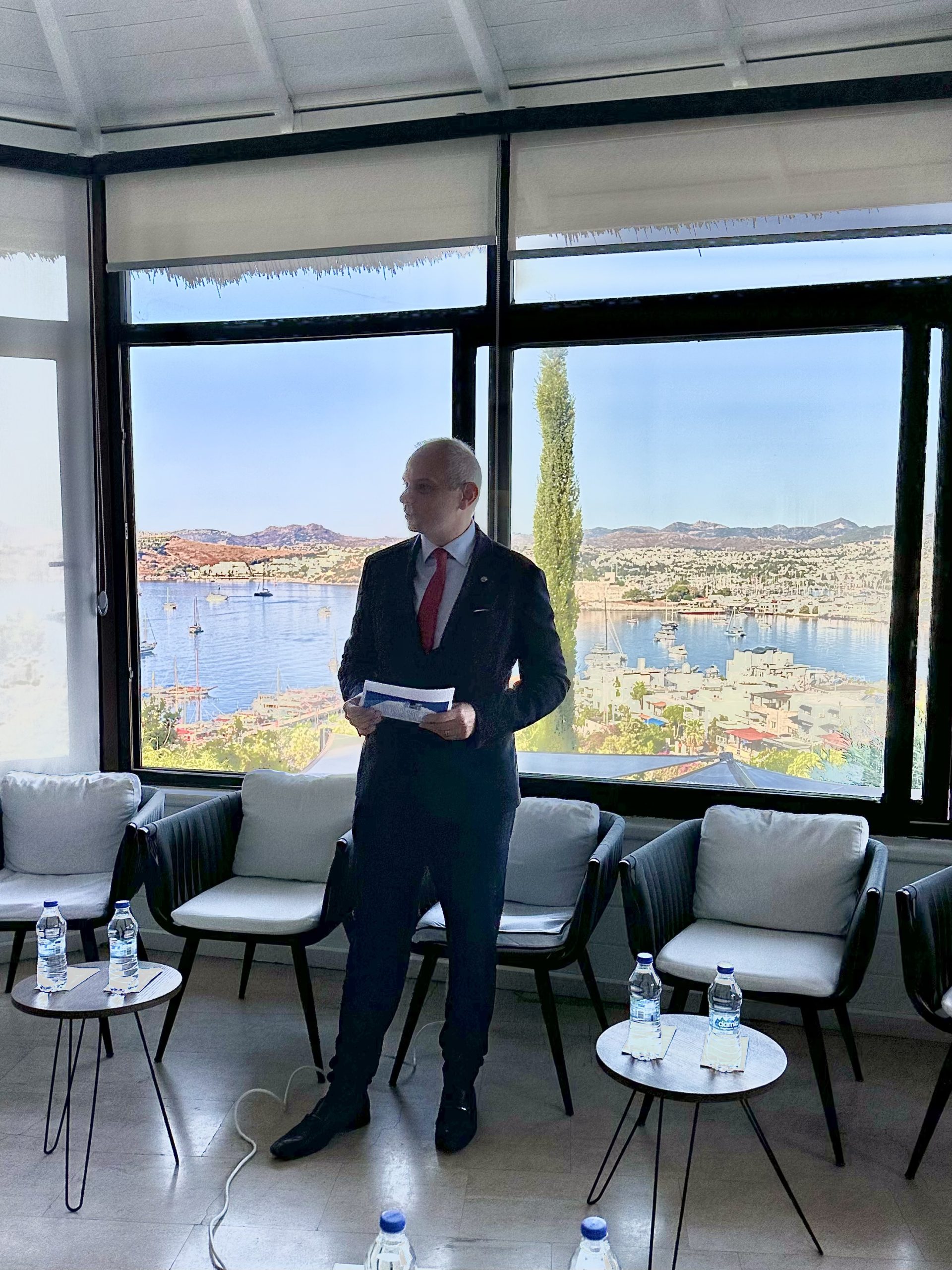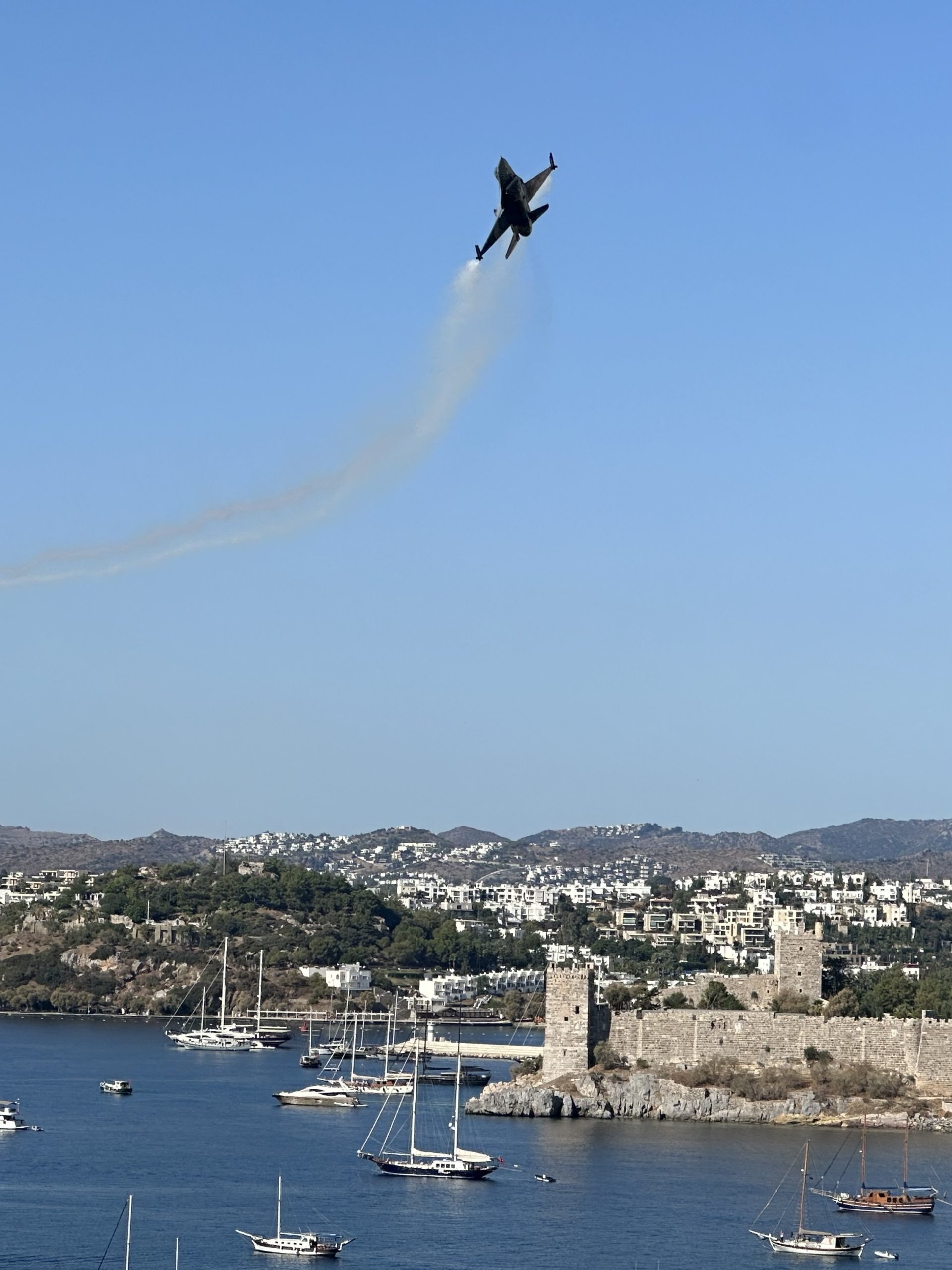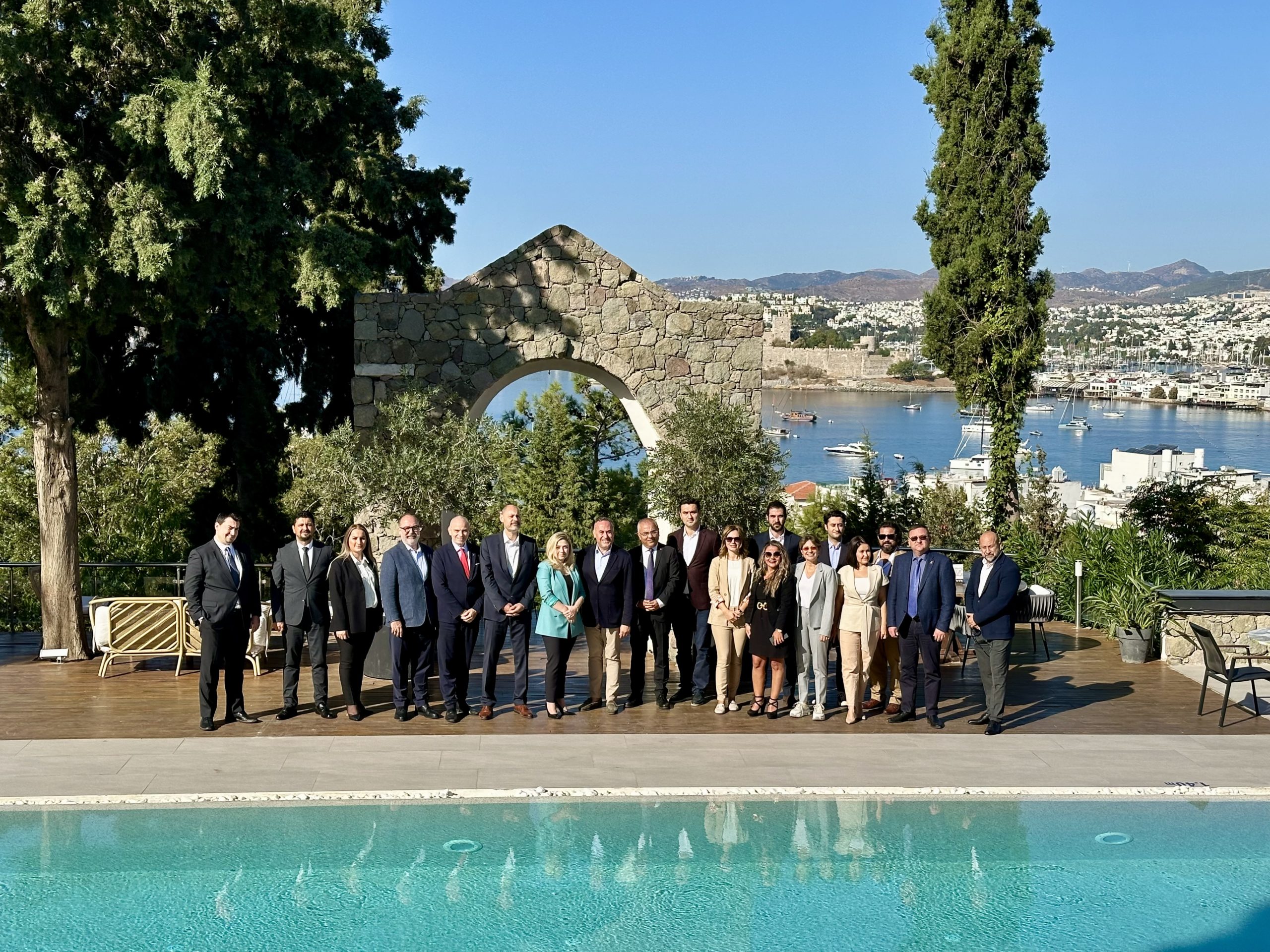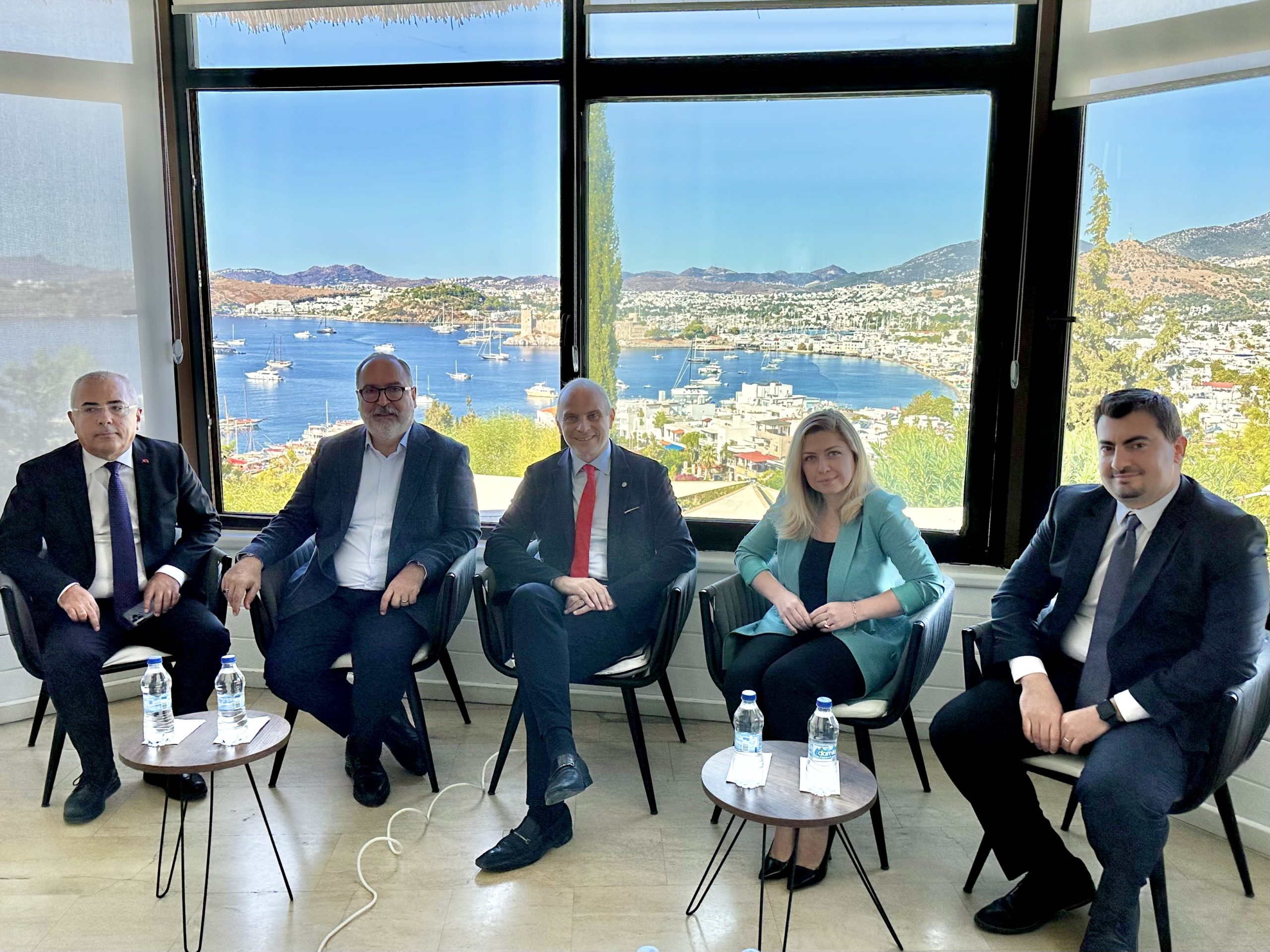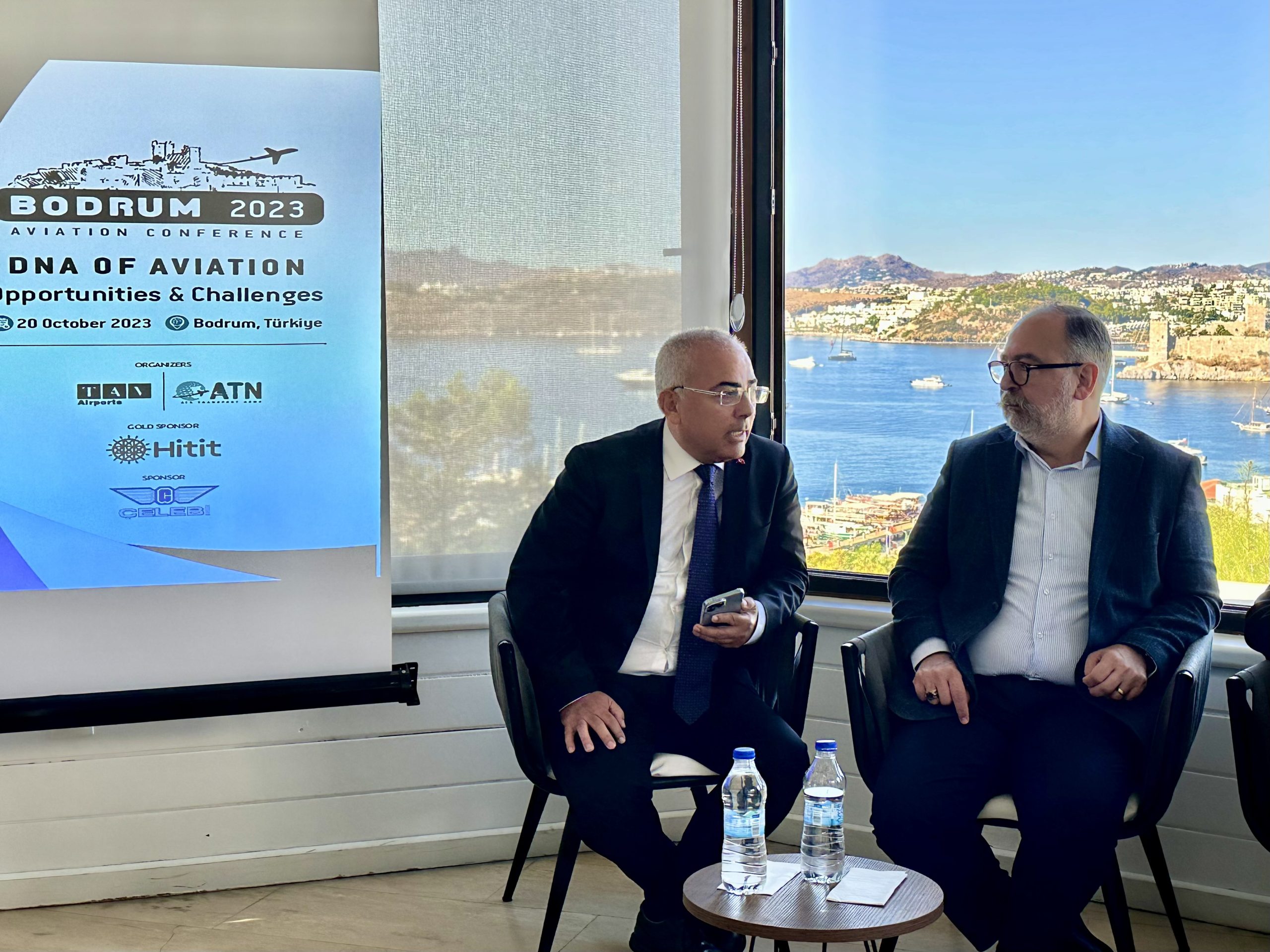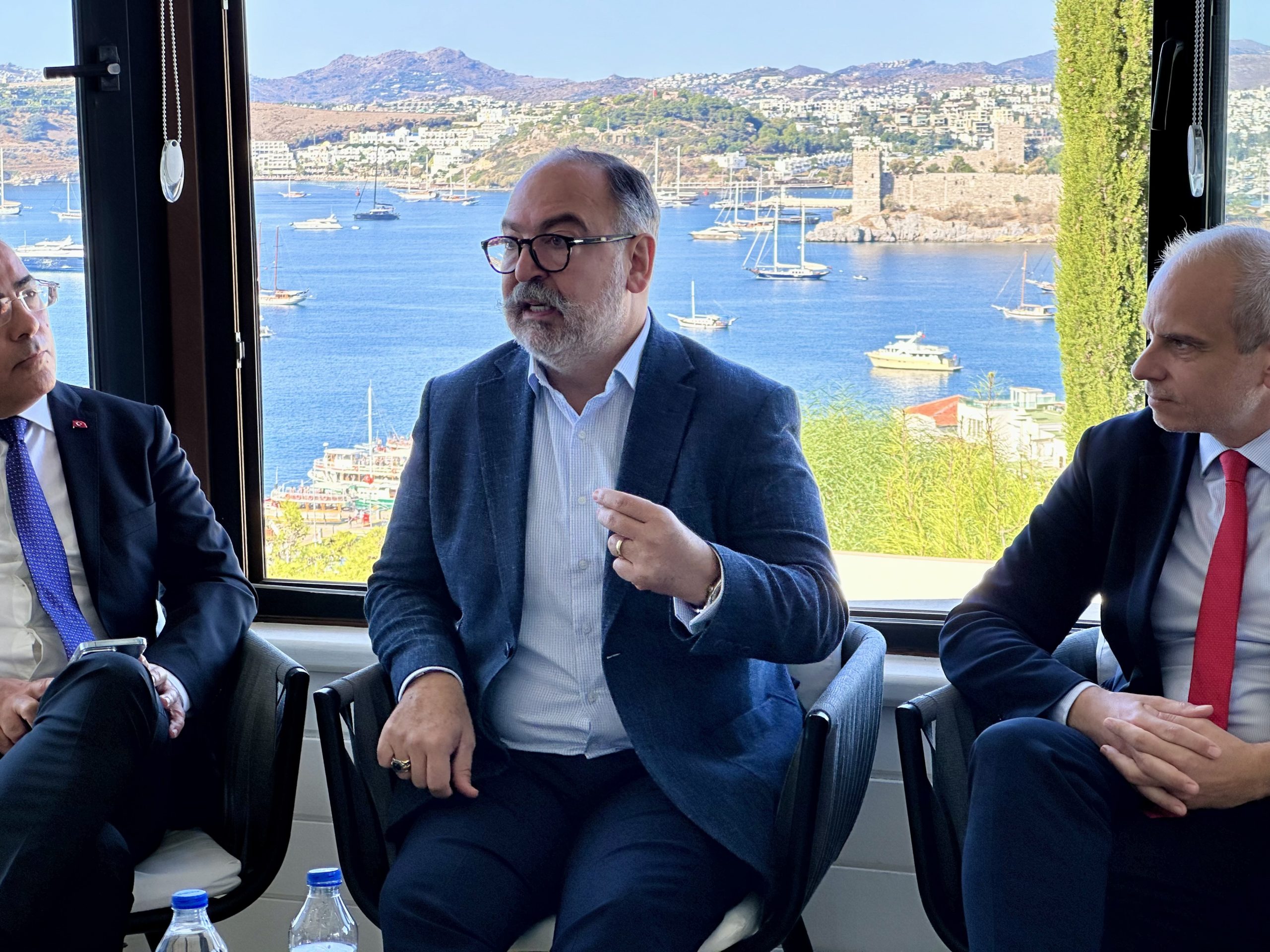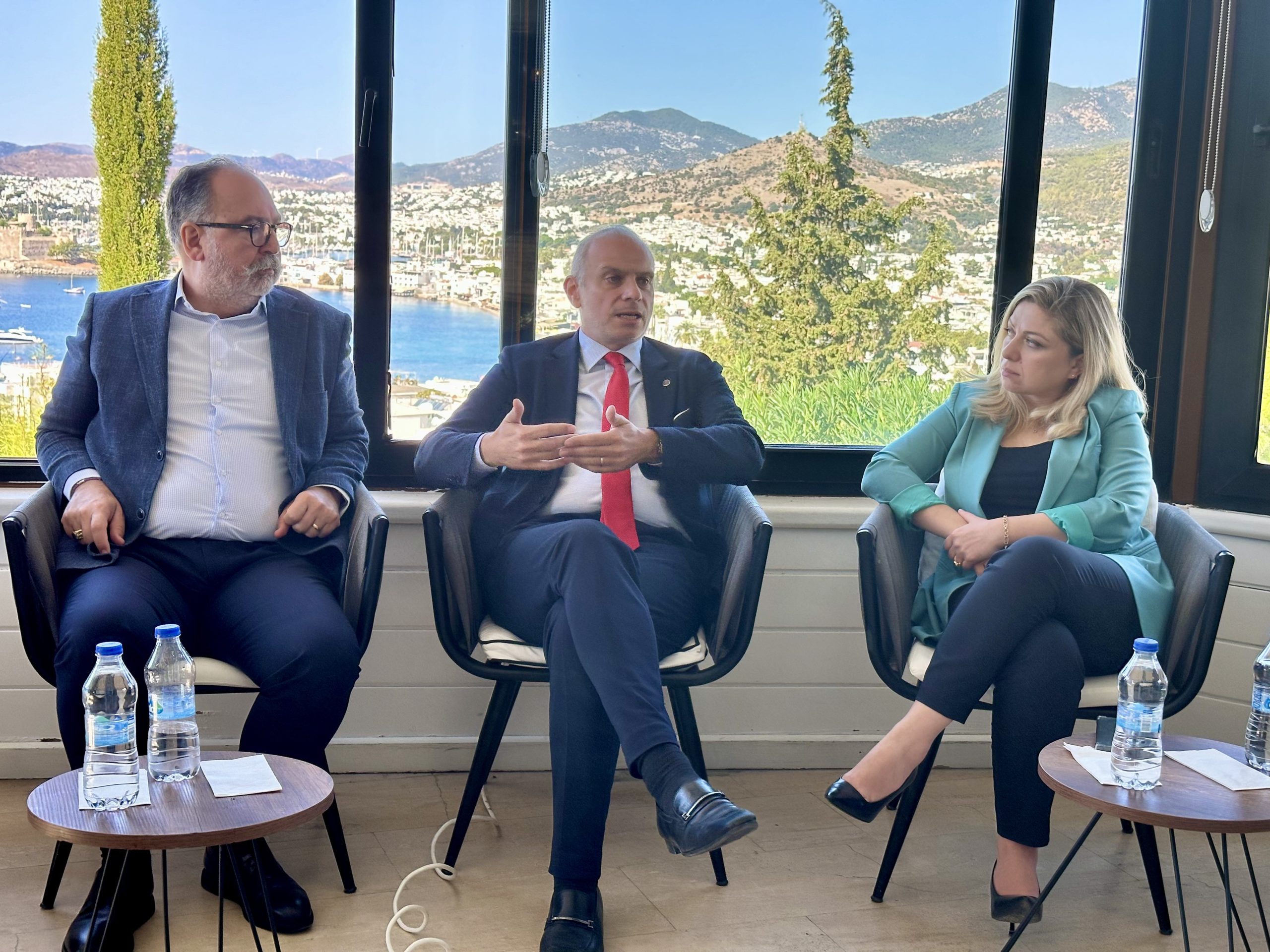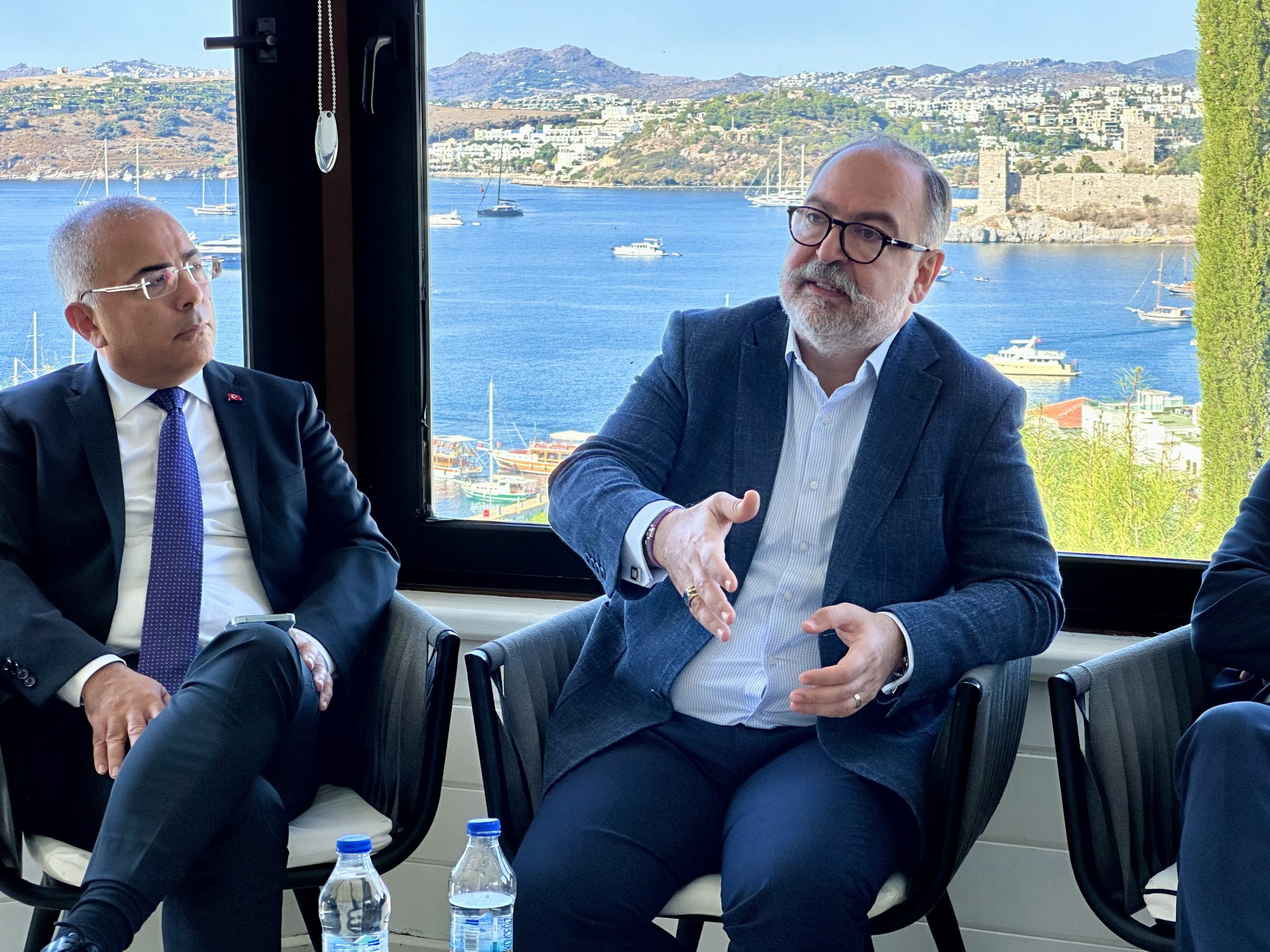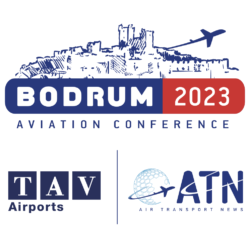
DNA of Aviation: Opportunities & Challenges
20 October 2023 – Bodrum, Türkiye
Regional development, trade and tourism are largely dependent on the air transport accessibility. The concept of sustainability is multifaceted and understood in different ways by different people. Yet, the COVID-19 pandemic has proved a major catalyst at various levels expediting previously observed trends and underlying business dynamics. The airlines and related supply chain partners suffered from unprecedented financial difficulties to the detriment of air connectivity too. Climate change is now at the top of the policy agenda and aviation-related companies should find viable solutions to address environmental challenges. New technology can provide path-breaking answers to both environmental and economic problems. Nonetheless, the societal pillar of sustainability should also be acknowledged; after all, air transport is above all a people’s industry.
.
Thursday 19 October – Magna Manastır Hotel
21:00 Dinner
Friday 20 October – Magna Manastır Hotel
09:00 Welcome Address
Dr Kostas Iatrou, CEO, ATN – Air Transport News
09:15 Keynote Addresses
Serkan Kaptan, CEO, TAV Airports
Fabio Gamba, Director General, ASA – Airport Services Association
10:30 Coffee break
11:10 Leaders panel
Moderator: Haydar Yalcin
-Mehmet Nane, Chairperson, Pegasus Airlines
-Cem Kirgiz, Deputy CSO, Sales Director, Hitit
-Dr Kostas Iatrou, CEO, ATN – Air Transport News
-Tamara Archuadze, Senior Director for Aviation Infrastructure, Aviation Administration of Kazakhstan
13:00 Conclusions
13:10 Lunch
.
The 2023 Bodrum Aviation Conference focusing on the “DNA of Aviation: Opportunities and Challenges” took place on the 20th October 2023. Dr Kostas Iatrou in his welcome address stressed the importance of air transport accessibility for regional development, trade and tourism. The concept of sustainability is multifaceted and understood in different ways by different people and in different areas of the world. Yet, the COVID-19 pandemic has proved to be a major catalyst at various levels expediting previously observed trends and underlying business dynamics. The airlines and the related supply chain partners suffered from unprecedented financial difficulties to the detriment of air connectivity. Climate change is now at the top of the policy agenda and aviation-related companies from airlines to traffic management service providers should find viable solutions to address environmental challenges. New innovative technology can provide path-breaking answers to both environmental and economic problems.
The speakers first underlined the significant growth of international passengers both direct and connecting apart from the cases of areas of geopolitical unrest. Liberalization has allowed service providers to acquire stakes in airports in regions different from the company seat. TAV Airports Holding f. ex., a Turkish airport operation and services firm, one of the world’s largest airport operators, provides services to 1 million flights and 152 million passengers in 15 airports in 8 countries in the Eastern Mediterranean and countries around Turkey. It was stressed that fully private services companies more agile to enter tenders.
Liberalization is not a panacea though unless it is accompanied by regulation as proven by ground handling. Ground handlers are “sandwiched” between authorities, airports and airlines as “they have to serve three masters”. Since there is lack of regulation “it is left to the airlines to oversee the ground handling services and airlines put emphasis on cost and ground handling providers are judged not by what they are providing but by the cost”. This results in safety problems as proven by lethal accidents in the US last year. The EU has understood the problem and the regulation introduced is in the right direction. Another major problem of ground handling, shared by other sectors of the industry is the inability to find and hire personnel. It is extremely difficult to convince people to make a career in ground handling, it is not appealing as it is a very demanding and very low in technology. This is a major source of worry as the sector will not be able to face the future demand. At the same time “technology has not bothered ground handling for the last 30 years using the same trolleys tracks fifty years”. One solution would be to introduce technology to move from labour intensive business to capital intensive business at least partially and take over and replace jobs, but who will for the cost investment?” And are airports ready to support the shift to electric infrastructure? Anticipation of the demands of airlines and airports in relation to electric equipment is “far from given”. Anyway such changes will certainly lead to consolidation in the ground handling sector.
The panel discussion first underlined that the industry should take a holistic approach to sustainability: the sector needs to be financially, operationally, safety wise and environmentally sustainable. On the subject of SAFs it was stressed that at the moment, despite the aviation commitment for zero carbon neutrality by 2050, today only 0.2% fuel comes from SAFs and there is only one company that is producing SAFs and this from grain livestock. With the imminent decrease in the production of grains brought about by the climatic change, the ethical question of feeding the poor in Africa and Asia or produce SAFs for airplanes will arise. There is the technology to produce SAFs from algae but investment is needed. To illustrate the fact that oil companies not interested in making investments they cited the case of the jet fuel companies that are obliged to deliver a minimum of 1% SAFs when delivering to French airports, they prefer to pay the fine instead. And this cost of course passes to the passenger through the cost of the ticket. The promotion of aggressive targets is nothing more than “greenwashing” and nothing for the environment, we are just satisfying ourselves”.
They stressed that governments need to catch up with airline and passenger demand. Growth needs work from all partners, with exchange of experience and best practices and governments should be supportive of aviation activities making infrastructure available. Governments are important for aviation but are at the same time the weakest link in the aviation chain as they take decisions they do not really understand aviation and they do not see the larger picture. Congestion remains an issue but they way they deal with it is not the right one. The French government has passed a bill to ban short-haul flights through parliament where a train alternative of 2.5 hours or less exists but planes traveling between Marseille and Lyon (both in the south and under 2 hours apart by train) are exempt from the ban, as are flights between Rennes and Charles de Gaulle airport in Paris. Schiphol airport, one of the main hubs in Europe wants to reduce the number of flights at peak times to reduce noise pollution which creates problems for the slot coordination. And the continuing disparities between regulations are discouraging.
Aviation has been at the forefront of technology, “only limited by the limitations of its technology” –it was aviation that started e-ticketing and the standardization of passports- but at the same time it is change resistant. The success of the low cost model is a proof that people want to travel, even with inflation people will continue to fly but will spend less. Aviation needs to adapt to the new reality. It was only after Covid 19 and the disappearance of many airlines that airlines started to look at ways to manage cost and try something new from the cost benefit perspective, that is to adopt low cost strategies to increase their cash flow such as focusing on direct channels and investments in technology. It was pointed out that many airlines that support regional stations and airports not talked about “big guys talk among themselves and smaller guys have to follow”, this is why so many small airlines disappear and this has to change. Aviation needs to attract and maintain personnel and invest in its training and education. Interestingly enough “pilot” tops the most desired jobs in the world based on google searches.
On the subject of technology they all agreed that the management of big data, digitalization and AI are the future but the technology needed in the field of aircraft and engines remains hazy. There is still no technology for the electrification of aircraft, hydrogen has not produced so far promising results. Boeing and Airbus are expecting a new type of aircraft by 2035. All these make people hesitant to invest in infrastructure.


